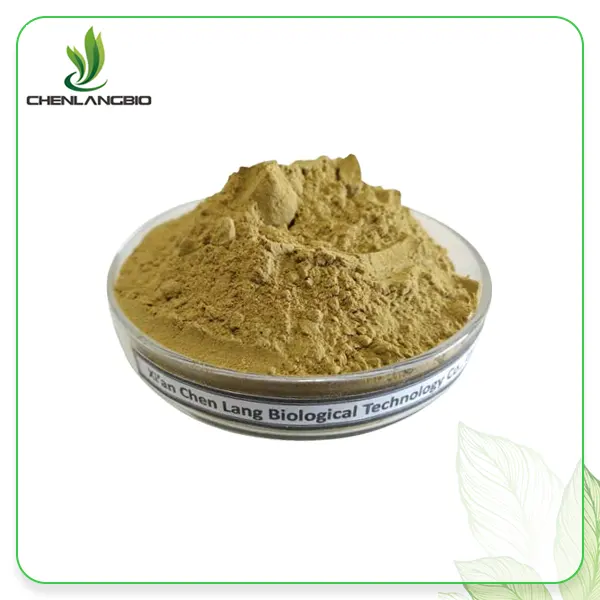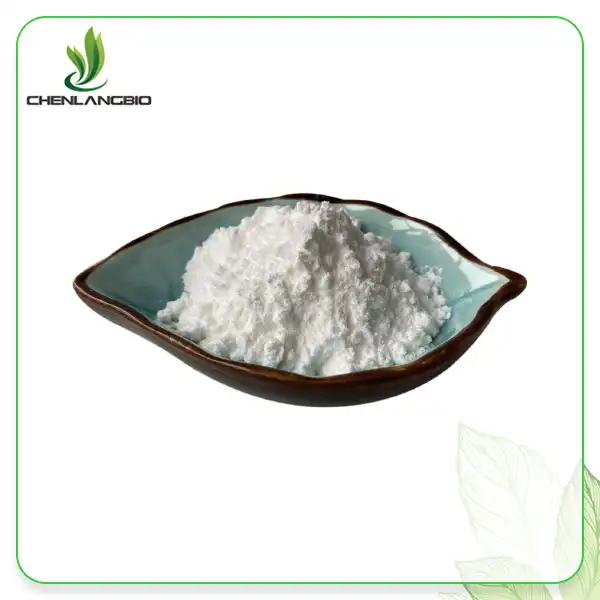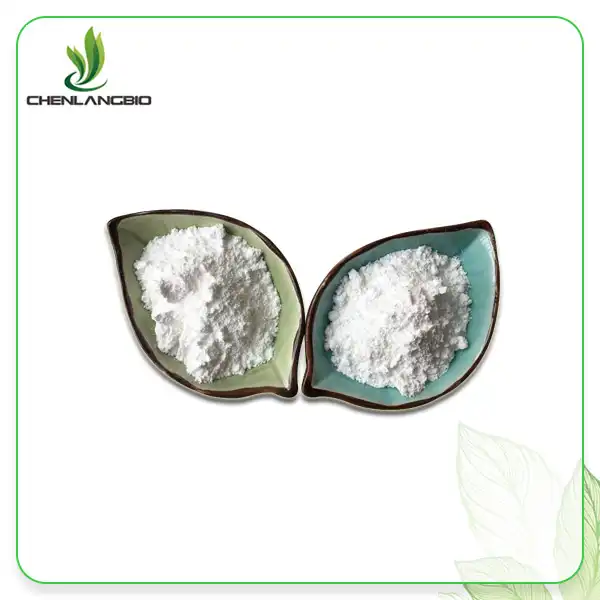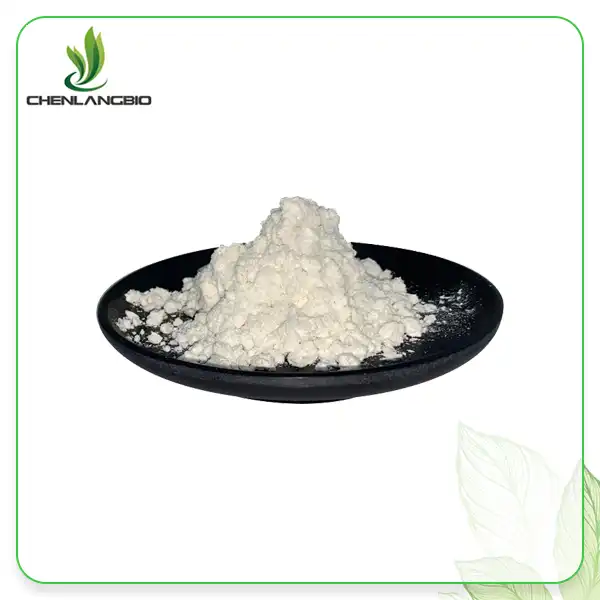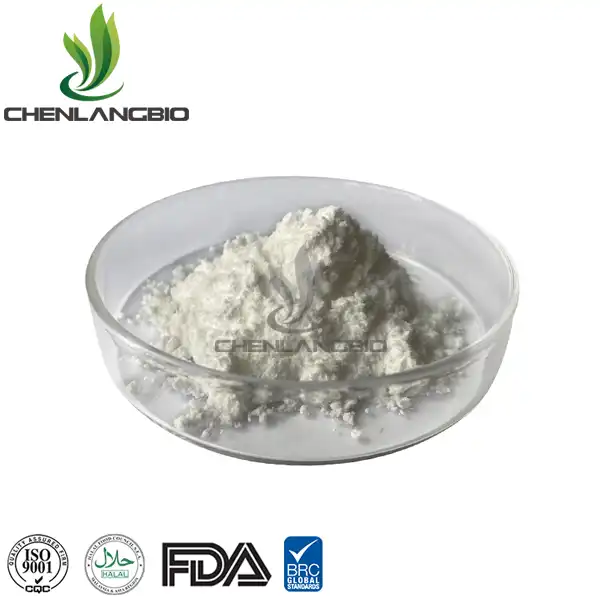Does Sodium Ascorbyl Phosphate Promote Collagen
2024-08-16 13:48:19
The stable, water-soluble vitamin C derivative sodium ascorbyl phosphate (SAP) has become more and more popular in skincare products because of all of its benefits. One of the most common queries is whether SAP contributes to the synthesis of collagen. Collagen is a vital protein for preserving the firmness, suppleness, and general health of skin. The greatest ways to use SAP in your skincare regimen and the relationship between SAP and collagen will be covered in this article.
How Does Sodium Ascorbyl Phosphate Promote Collagen Production?
The Role of Vitamin C in Collagen Synthesis
Collagen production depends on vitamin C. It functions as a cofactor for two enzymes called prolyl and lysyl hydroxylase, which are necessary for the stability and cross-linking of collagen molecules.
Vitamin C deficiency prevents collagen from being synthesized, weakening the skin's structure and making signs of aging more noticeable.
Stability and Efficacy of SAP
SAP is preferred in skincare formulations because it is more stable than ascorbic acid, the pure form of vitamin C. This stability ensures that SAP retains its potency over time, making it an effective ingredient for stimulating collagen production. Additionally, sodium ascorbyl phosphate is less likely to cause irritation, making it suitable for sensitive skin.
Scientific Evidence Supporting SAP's Role in Collagen Production
Numerous studies have demonstrated that SAP can penetrate the skin and be converted into active vitamin C. This conversion allows SAP to participate in collagen synthesis, helping to maintain skin firmness and reduce the appearance of fine lines and wrinkles.
What Are the Benefits of Using Sodium Ascorbyl Phosphate for Skin?
Antioxidant Protection
SAP provides powerful antioxidant protection, neutralizing free radicals that can damage skin cells and accelerate aging. By protecting the skin from oxidative stress, SAP helps preserve collagen and maintain skin health.
Brightening and Even Skin Tone
SAP is effective in reducing hyperpigmentation and brightening the skin. It inhibits melanin production, which helps fade dark spots and promote a more even skin tone. This benefit is particularly valuable for those dealing with sun damage or post-inflammatory hyperpigmentation.
Acne Reduction
SAP has antimicrobial properties that can help reduce acne and prevent breakouts. By controlling acne-causing bacteria and reducing inflammation, SAP can improve skin clarity and texture.
Can Sodium Ascorbyl Phosphate Be Used with Other Skincare Ingredients?
Compatibility with Retinol
Retinol is another potent anti-aging ingredient known for promoting cell turnover and collagen production. While SAP and retinol can be used together, it’s important to use them correctly to avoid potential irritation. Alternate between SAP and retinol, or use sodium ascorbyl phosphate in the morning and retinol at night.
Niacinamide, also known as vitamin B3, is compatible with SAP and may enhance its benefits. These two stable ingredients improve the texture of the skin, reduce hyperpigmentation, and provide antioxidant protection. Niacinamide and SAP can significantly enhance your skincare routine when used together.
When SAP is used in conjunction with benzoyl peroxide, it may oxidize and degrade, reducing its effectiveness. Additionally, due to the possibility of adverse interactions and diminished benefits, the combination of SAP and copper peptides ought to be avoided.
How to Incorporate Sodium Ascorbyl Phosphate into Your Skincare Routine?
The plan for the day is to use a mild cleaner first thing in the morning to get rid of pollutants. Use a serum with SAP and a toner to help the skin create more collagen and shield it from free radical damage. After applying a moisturizer and broad-spectrum sunscreen, shield yourself from UV rays.
Daily regimen at night: You may remove makeup and other pollutants from your skin by washing it in the evening. Use a toner to prepare your skin for the next procedures. utilize a retinol serum or similar product if you utilize a treatment. The next step is to promote the synthesis of collagen over night by using a SAP serum. A fantastic option to wrap off your regimen is with a moisturizing moisturizer.
Tips for Optimal Results
Consistency: To reap long-term benefits, consistently utilize SAP. Be patient because collagen production and improvements to the skin take time.
Test of Patch: When adding new products to your skincare routine, always test them on a small patch first to make sure nothing bad happens.
Introduction in Progress: Start with a lower SAP concentration if this is your first time using vitamin C derivatives and gradually increase it as your skin gets used to them.
What Are the Side Effects of Using Sodium Ascorbyl Phosphate?
Potential Irritation
Although sodium ascorbyl phosphate is generally well-tolerated, some individuals may experience mild irritation, especially if they have sensitive skin. Symptoms can include redness, itching, or dryness. If irritation occurs, reduce the frequency of use or switch to a lower concentration.
Allergic Reactions
In rare cases, individuals may have an allergic reaction to SAP. Symptoms can include swelling, hives, or severe itching. If you suspect an allergic reaction, discontinue use immediately and consult a healthcare professional.
Safe Usage Tips
Start slowly: To give your skin time to respond, start with a lesser concentration and then increase it.
Examine Your Skin: Based on how your skin responds, modify your application. Put it away and see a dermatologist if it still irritates you.
apply sunscreen: Since vitamin C might increase your skin's sensitivity to UV radiation, apply sunscreen during the day whenever you use products containing SAP.
Conclusion
sodium ascorbyl phosphate is a highly effective ingredient for boosting collagen production and a host of other skin benefits, such as reducing acne, protecting against free radicals, and brightening the complexion. You can have skin that looks younger and healthier if you know how to incorporate SAP into your skincare routine and use it in conjunction with ingredients that are compatible with it. To get the best results, remember to introduce new products gradually and keep an eye on how your skin reacts.
Feel free to get in touch with us at admin@chenlangbio.com if you want personalized guidance or more information about our products.
References
Healthline | The Benefits and Uses of Sodium Ascorbyl Phosphate
Byrdie | Sodium Ascorbyl Phosphate: What It Is and How It Benefits Your Skin
Allure | Everything You Need to Know About Sodium Ascorbyl Phosphate
Journal of Clinical and Aesthetic Dermatology | Sodium Ascorbyl Phosphate: A Vitamin C Derivative for Skin Health
Dermatology Times | Understanding the Role of Sodium Ascorbyl Phosphate in Skincare
WebMD | Sodium Ascorbyl Phosphate: Benefits, Uses, and More
Medical News Today | The Benefits of Vitamin C Derivatives in Skincare
Marie Claire | Sodium Ascorbyl Phosphate: A Stable and Effective Vitamin C Alternative
Vogue | The Rise of Sodium Ascorbyl Phosphate in Skincare
American Academy of Dermatology | Vitamin C in Skincare: Understanding Sodium Ascorbyl Phosphate
Send Inquiry
Related Industry Knowledge
- What is the Internal Version of Dimethylmethoxy Chromanol
- Is Cetyl Tranexamate HCL Safe for All Skin Types
- How Can Pure Fisetin Enhance Cognitive Function and Support Brain Health
- Who Should Avoid Hops
- Sodium Methylesculetin Acetate vs. Other Antioxidants
- Paeoniflorin 80% vs. Other Herbal Extracts: Which Is Best
- What Are the Side Effects of Cactus Extract
- Is Chaga Mushroom Extract Powder Bad for Your Liver
- What is Turkesterone Powder? The Newest Supplement In the Whole Market Improve Immunity
- Apple Polyphenol Benefits




.webp)
